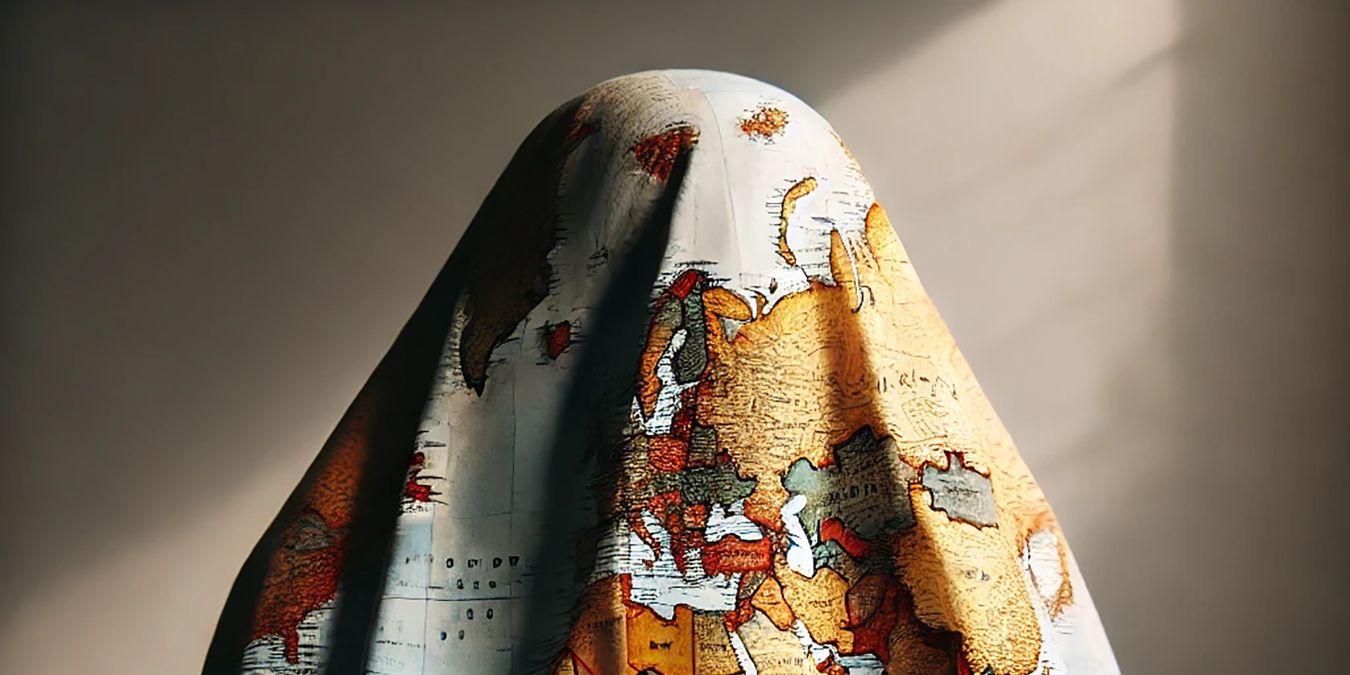
Zoom Out: A Surreal Snapshot of the World
© Amitesh Grover using DALL-E
60 Years of the International Forum
Anniversary Programme 2025 with 53 Alumni
What do the founders of a queer-feminist collective, a Chinese performer, the Artistic Director of Deutsches Theater Berlin and a successful Iranian author in exile have in common? They all – along with many others – attended the International Forum (IF), Theatertreffen’s platform for emerging artists, networking and empowerment, the global resonance space of the festival.
The 60th birthday of this historically forward thinking programme was used as an opportunity to showcase the developments of the artists invited to the International Forum in the past. The framing programme of Theatertreffen festival “Forum Theatertreffen 1965–2025” consisting of performances, readings, panels and keynotes by alumni, gave the audience an insight into the variety of artworks created by the 2,476 artists from 90 countries who have taken part in the International Forum.
On this site, we would like to share some highlights of this special anniversary programme with you: Enjoy reading, listening and watching – and welcome to the story of “Forum Theatertreffen”!
1
Impressions
Image series for “Forum Theatertreffen 1965–2025”
2
Speeches by Alumni
The programme “Forum Theatertreffen 1965–2025” was inaugurated by two alumni from the first and most recent year of the International Forum, who recalled their time in the Forum in their talks.
Sixty Years Ago
By Hermann Beil (IF 1965, Frankfurt am Main)
In the spring of 1965, the young assistant dramaturg at the City Theatres of Frankfurt am Main would visit the public and university libraries almost every day. Google and Wikipedia were still a very, very long way to go and the programme booklets were not designed by an expensive advertising agency: we were proud they were all our own work. His industrious labours were interrupted by a new task that took him by surprise: he was to take part in a two-week theatre course in Berlin. The whole thing was a new idea, and he absolutely had to be there, apparently. In future, the annual Theatertreffen with the 10 best productions from the German-speaking theatre world would be held in conjunction with a new forum, the “Meeting of Young Theatre Professionals”. This meant that:
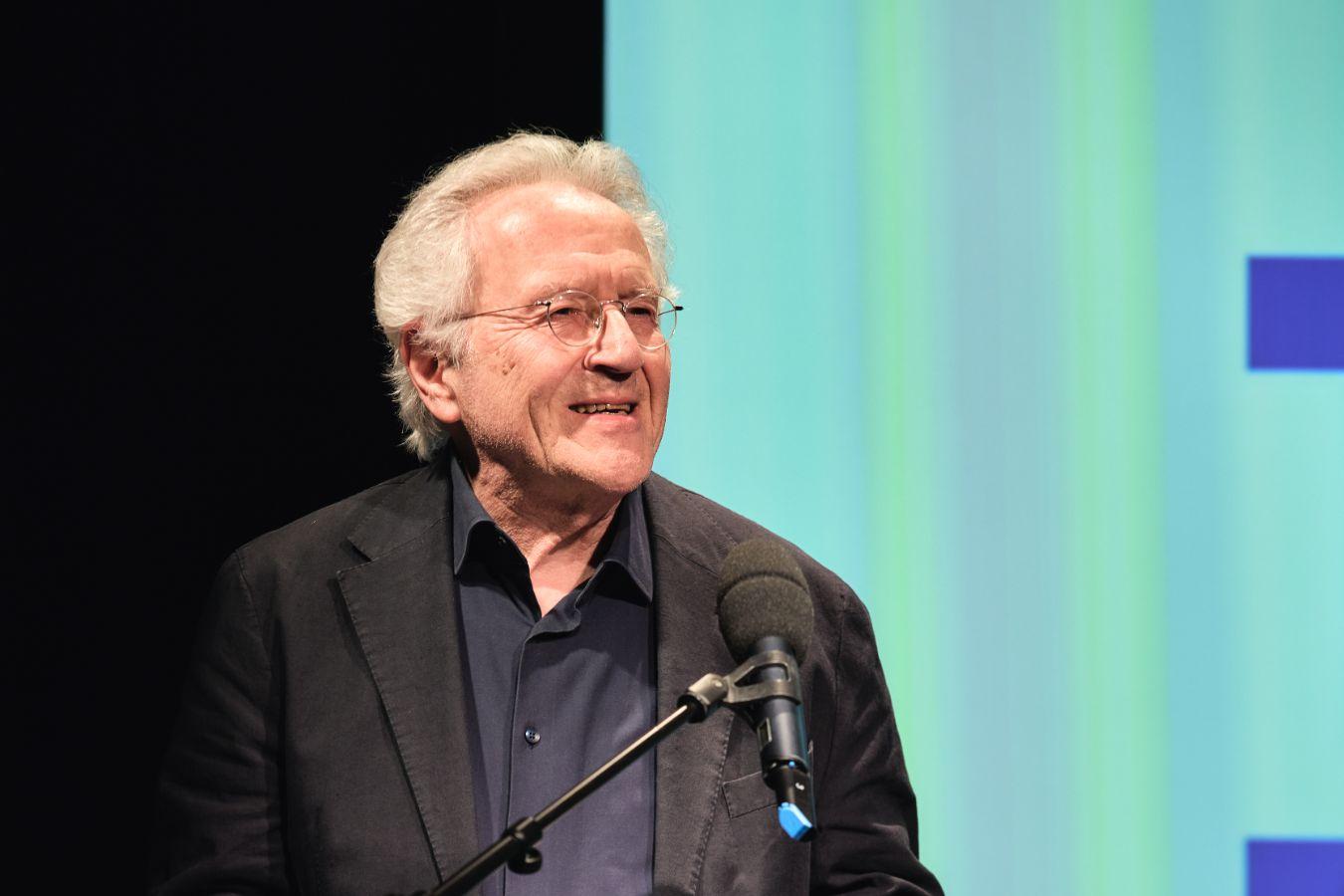
Hermann Beil (IF 1965)
© Berliner Festspiele, photo: Fabian Schellhorn
Meet Me Last Year in Berlin
By Meloe Gennai (IF 2024, Geneva)
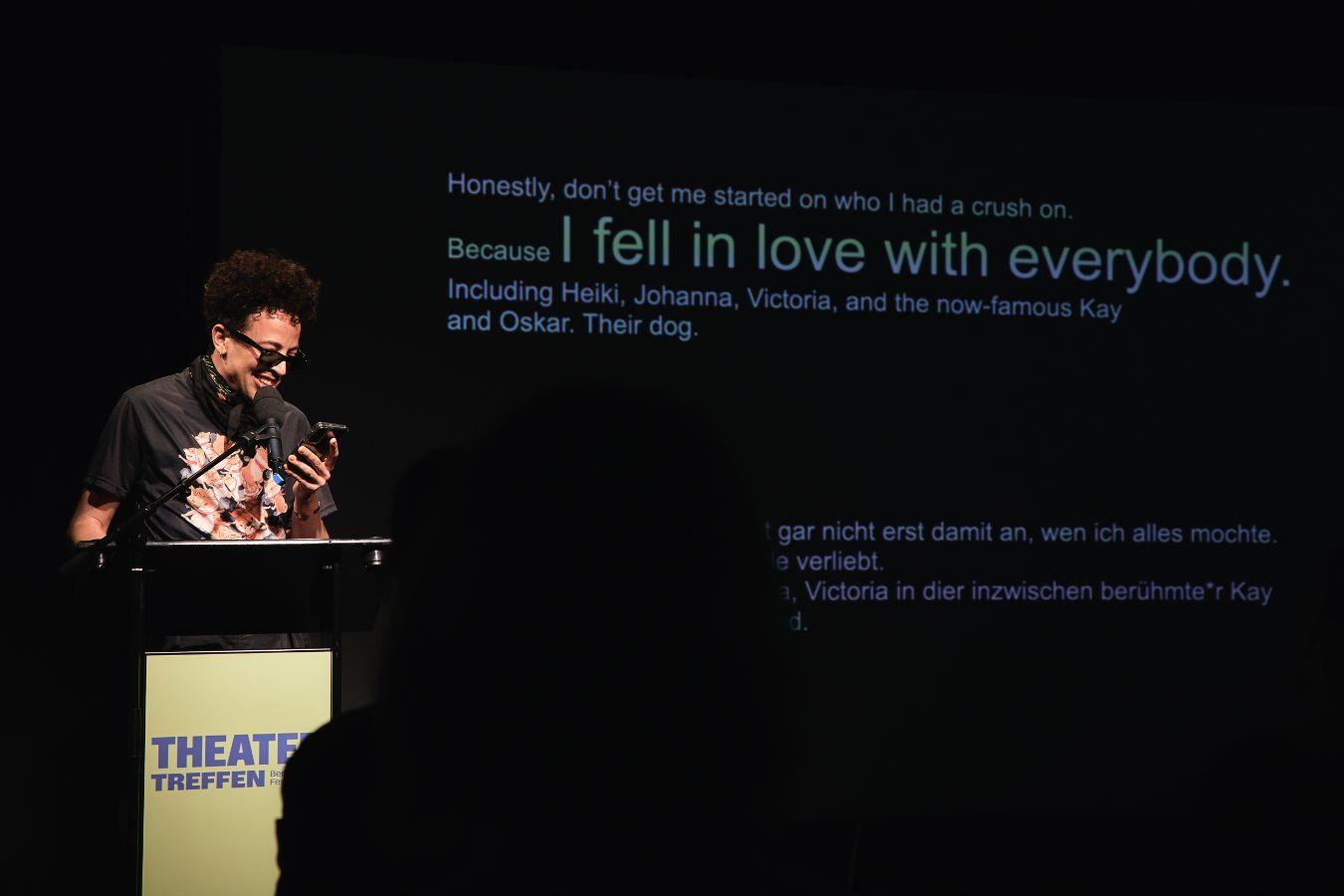
Meloe Gennai (IF 2024, Geneva)
© Berliner Festspiele, photo: Fabian Schellhorn
When I turned sixteen, I started cleaning a house in the countryside near Geneva.
All I could think about were the boots I would be able to buy myself if I worked hard.
Tall, shiny ones.
You know. The kind that say:
I’m here. And I’m serious.
With those boots, I would be one step closer to my dream job
Meet me here in Berlin last year
3
IF on Radio
Für immer jung: 60 Jahre Internationales Forum beim Theatertreffen (Forever Young: 60 Years of the International Forum at the Theatertreffen)
Radio Feature on Deutschlandfunk Kultur, 10 May 2025
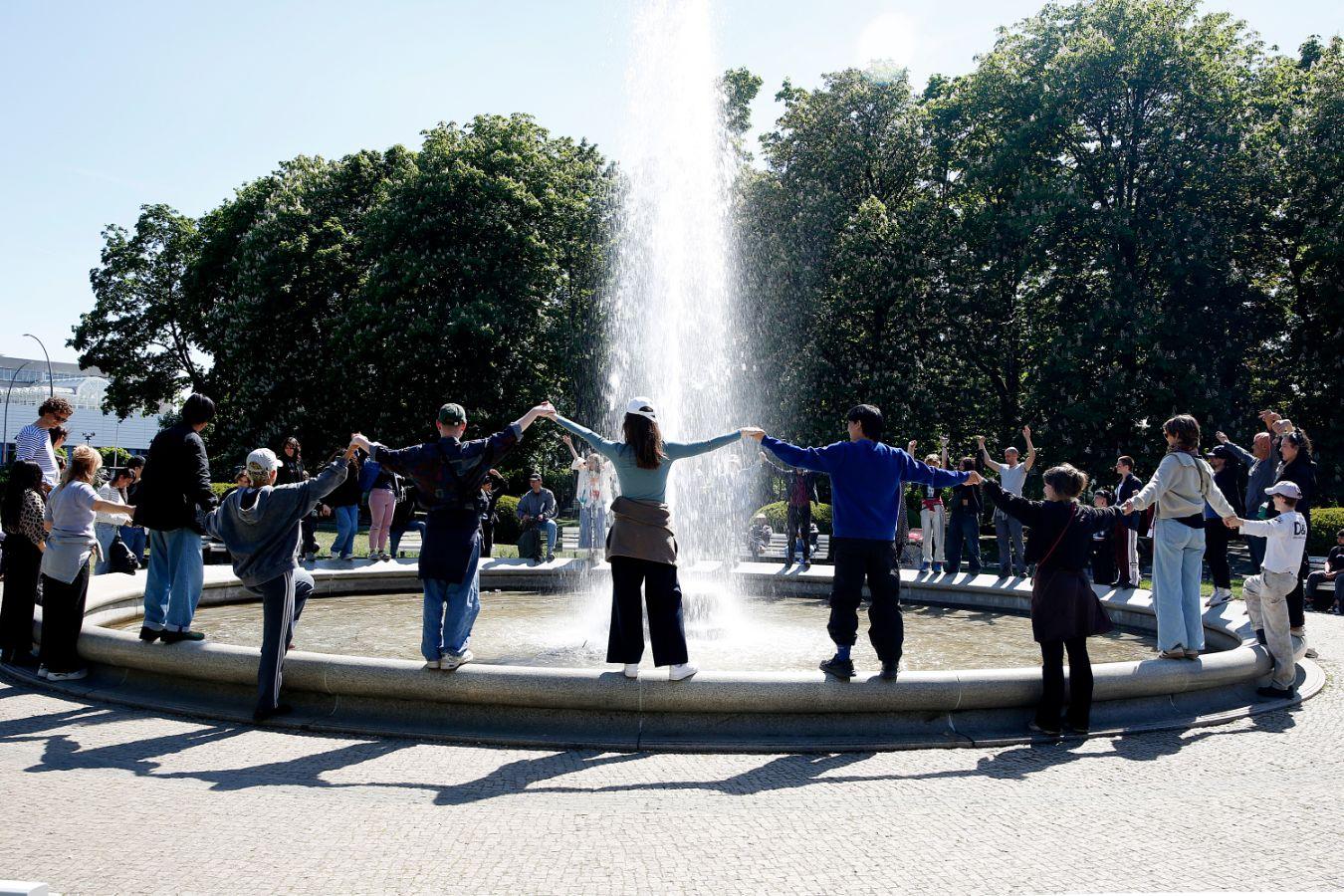
Workshop, International Forum 2025
© Berliner Festspiele, photo: Constanze Flamme
Journalist and theatre critic Barbara Behrendt visited the International Forum 2025 and spoke with fellow Yevheniia Vidishcheva (IF 2025, Kyiv) and alumnus Jossi Wieler (IF 1981, Düsseldorf) about their experiences in the scholarship programme — about diverse perspectives, shared (theatre-) experiences and artistic careers.
The radio feature is in German.
4
Artistic Contributions
“Zoom Out: A Surreal Snapshot of the World” by Amitesh Grover (IF 2013, Delhi)
Recording of the Performance on 3 May 2025
Several alumni of the International Forum – separated by thousands of kilometers and a few generations – connected in real time through a digital medium during the opening night of “Forum Theatertreffen 1965–2025”. Director Amitesh Grover opened an interactive dialogue connecting the alumni’s spontaneous statements. In this way, he created a surreal snapshot of our current globalized world.
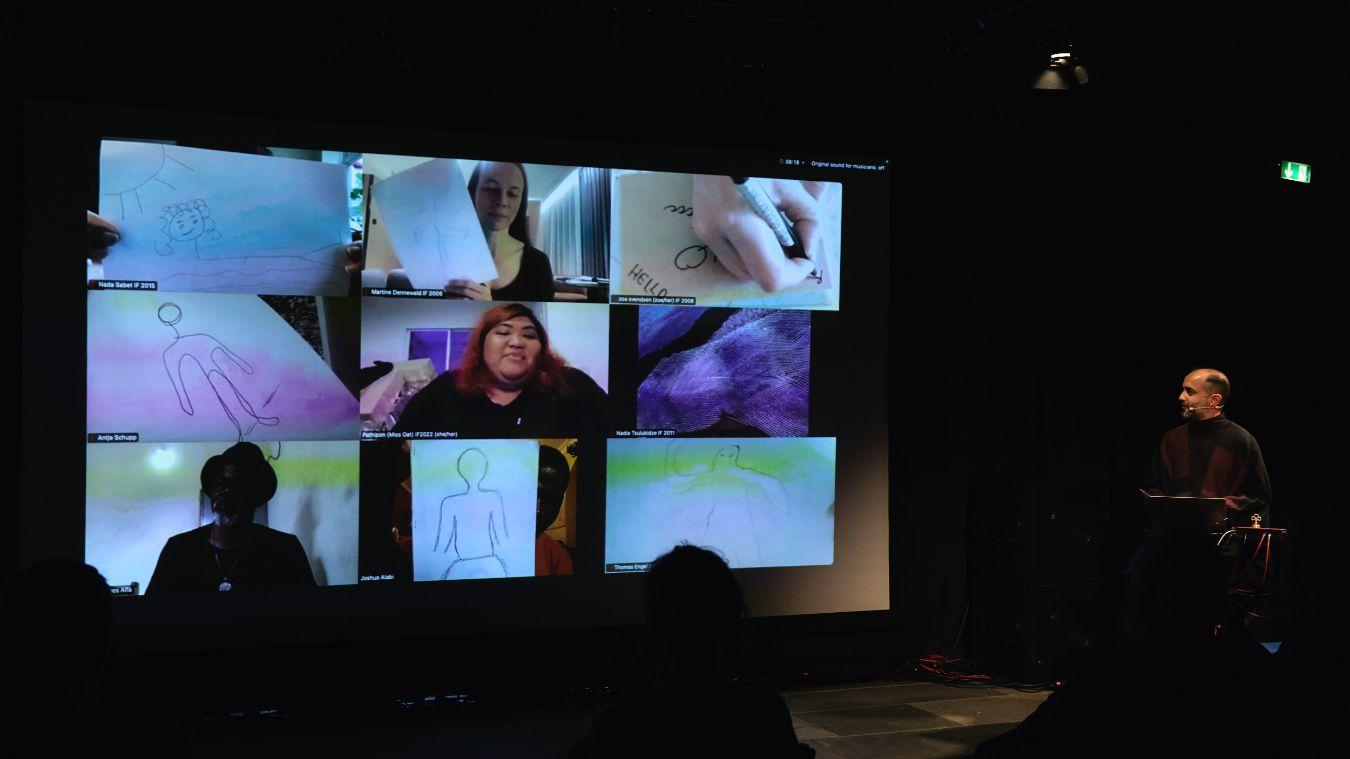
“Zoom Out: A Surreal Snapshot of the World” by and with Amitesh Grover
© Berliner Festspiele, photo: Fabian Schellhorn
“A Border Is a Line That Birds Cannot See” by Kieron Jina (IF 2019, Johannesburg)
Audio Excerpt of the Performance on 6 May 2025
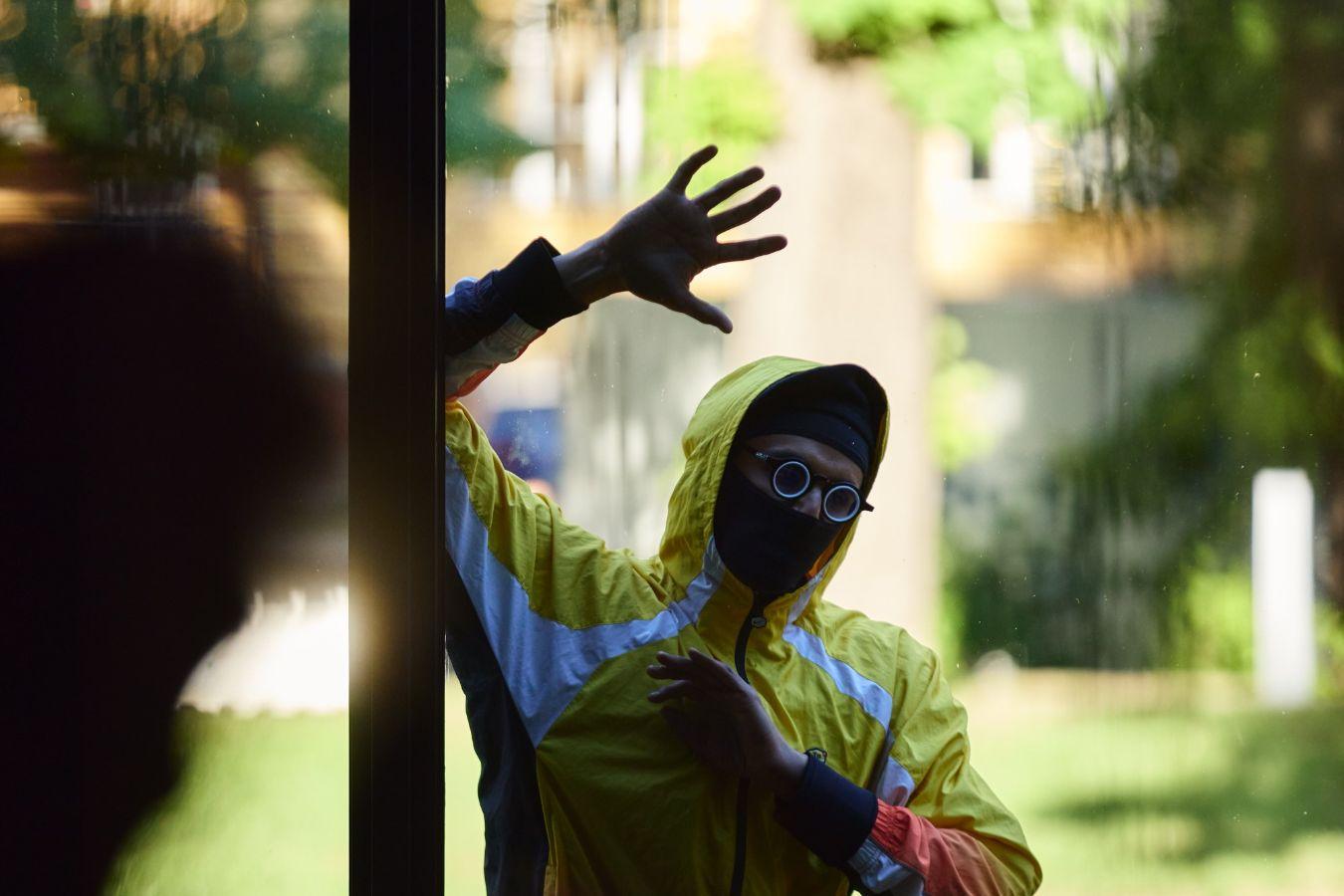
“A Border Is a Line That Birds Cannot See” by and with Kieron Jina
© Berliner Festspiele, photo: Fabian Schellhorn
Moving, dancing and soaring between the outside and inside, Kieron Jina invites the audience to reflect on the question of belonging: What if, instead of “Where are you from?”, one asked “Where are you a local?”
On 6 May 2025, artist Kieron Jina, sound designer Yogin Sullaphen and other storytellers combined traditional cultural practices with multimedia storytelling in the Kassenhalle and garden of the Festspielhaus, offering the audience the opportunity to imagine and create a future that is more inclusive, inspired and inspiring.
Фотографії вулиці Січових Стрільців | Photos of Sichovykh Striltciv Street
Excerpt of the Audio Photo Album by Dima Levytskyi (IF 2016, Bar)
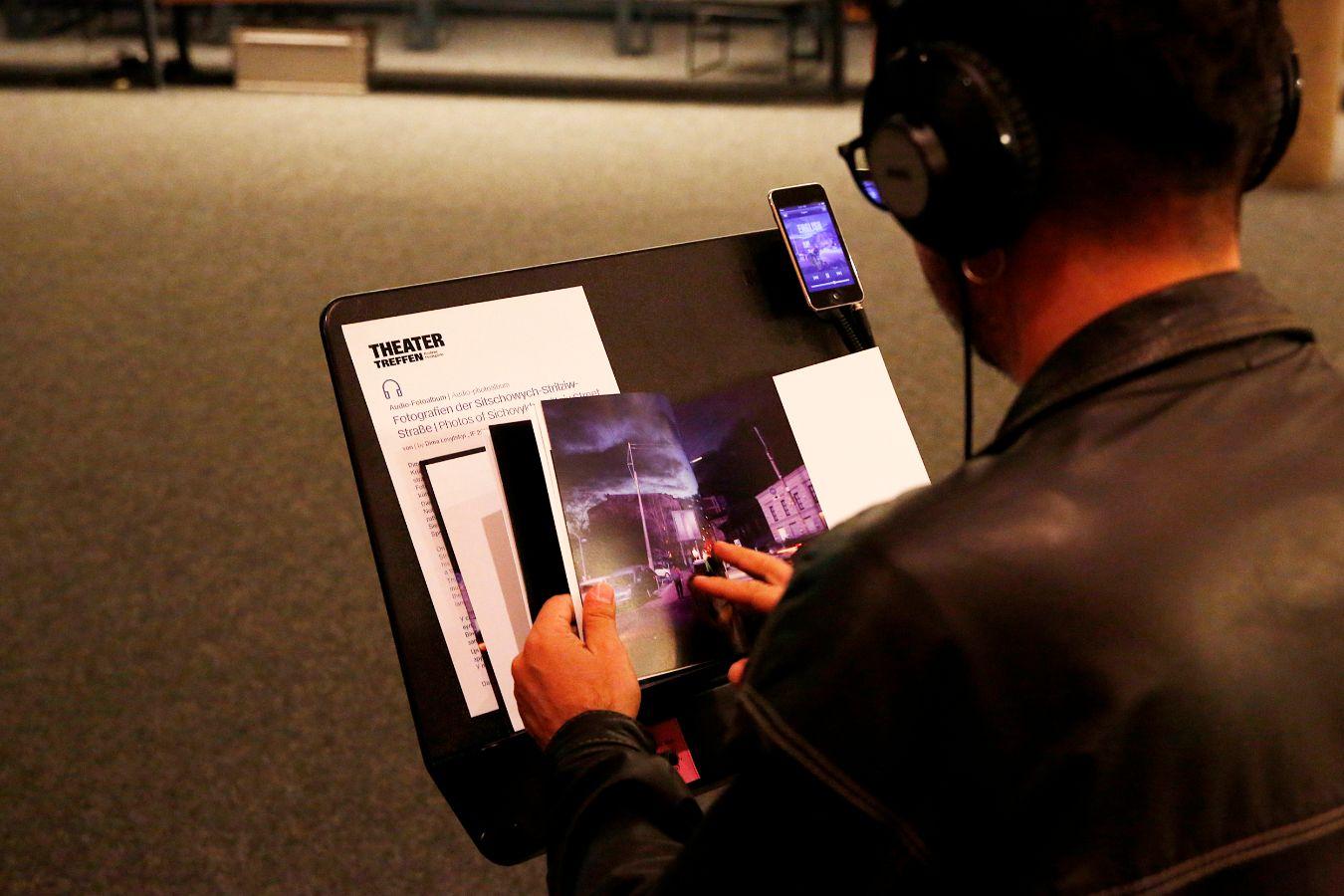
Audio photo album by Dima Levytskyi
© Berliner Festspiele, photo: Constanze Flamme
“Going for a stroll means letting your eyes dance through the city,” writes Dima Levytskyi. His audio photo album offers an intimate experience through an artistic look at everyday realities of living in Kyiv today. Levytskyi invites the audience to listen to his description while watching the photos of Sichovykh Striltsiv Street, a two-kilometer main road in the centre of Kyiv. In this story, a photograph can be seen and heard as an excerpt with the accompanying narrative.
5
The Cohort of 2025
In 2025, 33 fellows of the International Forum – from Asunción, Ibadan, Riga and Schwedt an der Oder, among other places – met for two weeks to accompany Theatertreffen festival from multiple perspectives and to exchange ideas with each other and with other artists.
Impressions
6
Programme Brochure
Programme Brochure “Forum Theatertreffen 1965–2025” to Browse
Here you can browse the complete programme brochure of the anniversary programme with all involved participants.
40 pages
As of April 2025















